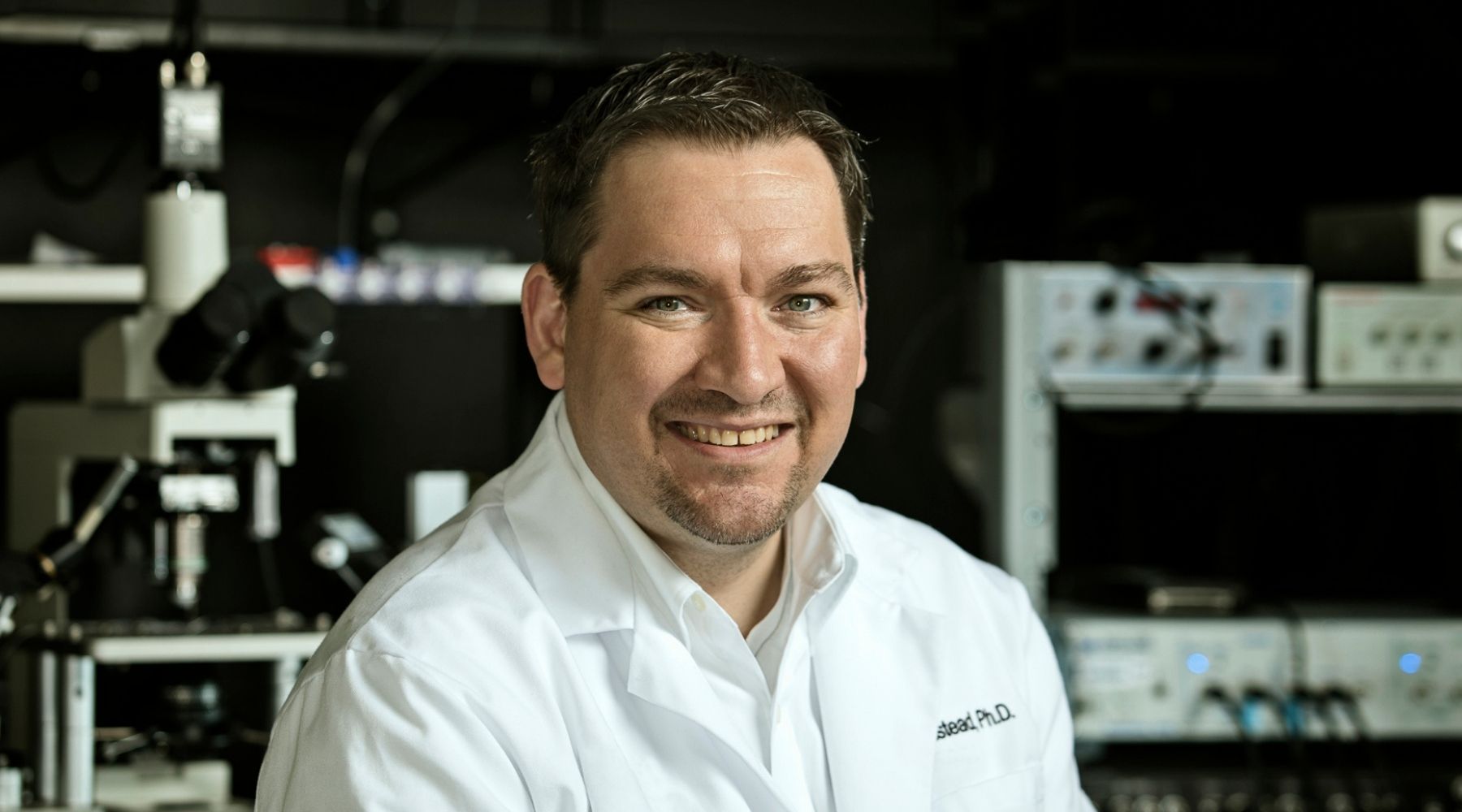The U.S. Department of Veterans Affairs has awarded $1.1 million to an Oklahoma Medical Research Foundation scientist who hopes to reduce the skyrocketing incidence of opioid addiction and deaths among veterans.
Michael Beckstead, Ph.D., received the 4-year grant to focus on the brain’s specific pathways affected by narcotics. His ultimate goal: finding a treatment targeting these pathways for people who become addicted to painkillers, particularly upon return from military service.
“Thanks to advances in medicine and technology, many soldiers now survive grave injuries,” Beckstead said. “That’s fantastic, but due to the nature of their injuries, many have lingering problems and become addicted to opioids.”
The Substance Abuse and Mental Health Services Administration estimates that in 2019, nearly 600,000 veterans engaged in opioid misuse. In the same year, opioids accounted for 70% of all drug overdose deaths, according to the U.S. Centers for Disease Control and Prevention.
In his lab at OMRF, Beckstead will focus on the brain’s reward pathways and the chemical dopamine, which sends messages between nerve cells. “Dopamine tells your brain, ‘Whatever you just did, you need to do it again,’” he said.
With repeated exposure to rewards, dopamine neurons begin responding to cues rather than the reward itself. For example, when a snack follows a light switch being turned on, mice begin responding to the appearance of the light and continue doing so long after the snack reward is withheld.
The same holds true for humans, Beckstead said, noting that opioids lead to a more pronounced reaction than natural rewards such as food.
“With repetition, the brain comes to expect that release of dopamine,” said Beckstead. “But when a person attempts to stop using, the body reacts negatively, thinking it needs the dopamine-triggering drug.”
His lab will attempt to isolate the specific pathways that respond to opioids without shutting down the broader receptors for dopamine.
Another OMRF scientist, Bill Freeman, Ph.D., will examine molecular changes in the brain caused by chronic drug use.
“If we know how these changes occur, we can begin to formulate treatments,” Freeman said.
Any future treatment, both scientists cautioned, will be only part of the solution. They view it as part of a strategy that includes treatment to address the emotional aspects of the disease.
“There’s no magic pill to cure addiction,” Freeman said. “You have to treat the whole person.”
The grant, 1I01BX005396-01A1, is funded by the Department of Veterans Affairs Biomedical Laboratory Research and Development.



